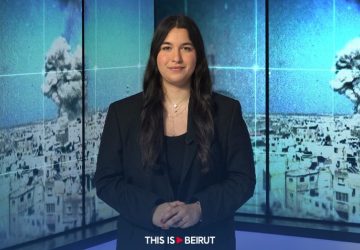Listen to the article
In a move that brought the simmering divisions between the Free Patriotic Movement (FPM) and its former ally Hezbollah into the open, former President and FPM founder Michel Aoun and the party’s current leader, MP Gebran Bassil, denounced Hezbollah’s military activities against Israel in South Lebanon.
“We are not bound to Gaza by a defense treaty. The Arab League member states can establish links between the fronts,” Aoun said in an interview on Monday, in reference to the so-called “support front” for Gaza initiated by Hezbollah on October 8, a day after the war broke out in the enclave between Hamas and Israel.
Meanwhile, Bassil stressed, “We are not in favor of holding Lebanon responsible for the liberation of Palestine, as this is the responsibility of the Palestinians… We are not in favor of uniting fronts or linking Lebanon to other fronts, specifically linking the cessation of the war in the South to an end of the war in Gaza.”
The unabating violence in the South is exacerbating fears that the conflict could devolve into a full-fledged war.
Questions arise on whether the 2006 Mar Mikhael agreement that sealed the alliance between the FPM and Hezbollah is still standing.
A Separation… With Safeguards
FPM MP Alain Aoun said that he wouldn’t go as far as describing the situation as “a divorce.”
“The relationship between the FPM and Hezbollah will not be severed, given that all Lebanese parties need to find common grounds between themselves,” he said in an interview with This Is Beirut.
Aoun acknowledged that relations between the two parties “have not been the same,” and that they have been drifting apart for some time.
He explained that the two parties no longer see eye to eye on several issues and are rather “at odds.”
“It is a new phase which I can describe more as a separation with safeguards than a severe split.”
When asked about the causes behind this estrangement, Aoun said that the FPM’s stance “is in line with the 2006 agreement, which calls for a defense strategy for Lebanon, and consequently, the declarations (by Aoun and Bassil) should come as no surprise.”
The Mar Mikhael agreement, sealed in the wake of the 2006 war with Israel, helped Michel Aoun ascend to the long-coveted presidency in 2016 in exchange for the FPM’s support to Hezbollah. However, the “marriage of convenience” started to erode following disagreement over a presidential candidate to succeed Aoun, whose mandate expired in October 2022, with no successor elected thus far.
A Clear Stance
Kataeb MP Elias Hankach cautioned that the FPM’s apparent change of heart could “just be maneuvers to gain advantages in this narrow game of politics.” He noted that former President Aoun also spoke about “the wisdom of (Hezbollah’s Secretary General Hassan) Nasrallah and the strength of deterrence” of the so-called resistance.
“This is pure contradiction. The FPM must adopt a clear stance, because there is no place for ambiguity or for pleasing both sides in the Lebanese internal division,” he told This Is Beirut.
Hankach considered that the FPM’s natural place is in the sovereign camp, calling on its leadership “to rectify its mistake and join the march towards reclaiming decision-making.”
Game-Changer
Journalist Ali Hamadeh described the FPM-Hezbollah relationship as being at “its lowest.” He considered that Aoun’s and Bassil’s declarations “are moving in the same direction,” in the sense that they both reflect “a clear distancing from Hezbollah’s positions, especially with regards to the military developments on the Lebanese-Israeli border, which have turned into battles that are extending far from the borders and deeper into Lebanese territory.”
In an interview with This Is Beirut, Hamadeh said the distancing has been gradual, “especially after their strong disagreement over the presidential elections and the Shiite duo’s candidate Sleiman Frangieh.”
He dubbed this “event” as a “major political development,” arguing that “if it holds, we would be witnessing a big change on the Christian political scene towards Hezbollah.”
“The FPM is Hezbollah’s last bastion… and major ally in the Christian arena,” Hamadeh said, adding that a separation between them “would be a game changer.”





